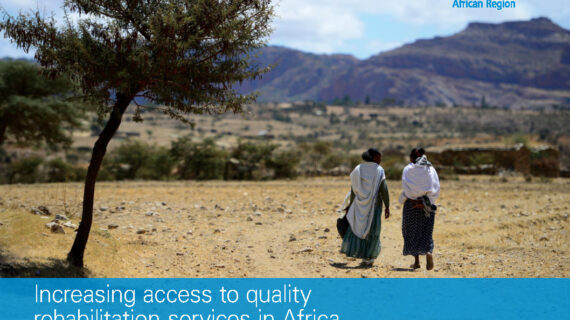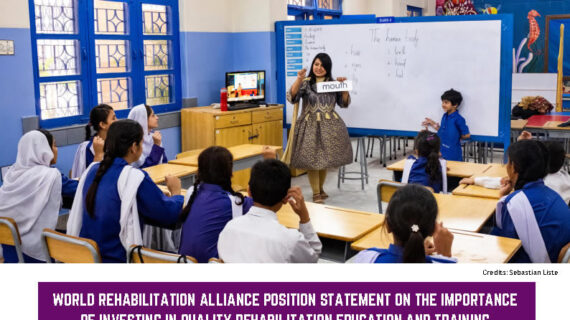Resolutions of the 7th CBR/CBID Africa Conference, 9TH-12TH-September 2024 (Hybrid)
1. Development and Review of CBID Strategic Plans
Governments that do not yet have CBID strategic plans and accompanying guidelines should prioritize their development and implementation without delay. For governments that already have such plans, regular reviews should be conducted to ensure they are continuously improved and updated to address emerging issues.
2. Support for Research and Mapping Gaps in CBR Policy
Governments, civil society organizations (CSOs), and development partners should support research aimed at identifying and mapping gaps in CBR policy, legislation, training, and practice. This research should inform the transition from CBR to CBID. Once these gaps are identified, stakeholders should pilot and eventually mainstream the CBID strategy in national programs.
3. Regulation of Assistive Technologies
Assistive technologies, particularly devices, are crucial for the participation and functioning of persons with disabilities. However, improper assessment and use of these devices can cause secondary impairments. Given that assistive devices are largely left to the private sector and donors, making access difficult, governments should develop regulations to oversee the production, importation, assessment, distribution, use, and maintenance of these devices.
4. Training and Employment of Rehabilitation Professionals
The successful planning and implementation of CBR/CBID programs require trained multidisciplinary professionals. However, many countries face a shortage of such professionals, and even when trained, they are often not absorbed into public or private sector employment. Governments, CSOs, the private sector, and development partners should support the training and employment of habilitation and rehabilitation professionals.
5.Mainstreaming Disability in National Development
Disability is a cross-cutting issue in development, yet rehabilitation and other services are often poorly integrated into community programs. This exclusion results in persons with disabilities being left out of national programs and services. Governments, in full collaboration with Organizations of Persons with Disabilities (OPDs), should develop policies,legislation, and nationwide implementation plans to mainstream disability in all national development plans, with a focus on community-level programs.
6.Inclusive Data Management for Planning and Budgeting
Data is essential for development planning and budgeting. However, disaggregated data on persons with disabilities is often lacking, making it difficult to address their specific needs.
overnments and development partners should invest in developing and maintaining inclusive data management systems to inform planning, budgeting, and the implementation,monitoring, and evaluation of disability interventions.
7.Inclusion of Disability in Government and Development Partner Agendas
Governments and development partners working with marginalized groups, as well as ministries across governments, should ensure that persons with disabilities are included in their agendas. At least 10% of resources should be allocated to disability-inclusive programs.
8.Collaboration to Avoid Duplication and Ensure Quality
OPDs and all relevant partners should collaborate with governments and service providers to avoid duplication of services, prevent wastage of resources, and ensure joint monitoring of service quality and relevance.
9. Strengthening Employment Quotas for Persons with Disabilities
Governments should continue to strengthen the implementation of employment quotas for persons with disabilities, ensuring that they are employed in positions that match their qualifications, skills, and experience.
10. Awareness Creation to Address Attitudinal Barriers
Governments, development partners, CSOs, and OPDs should work together to raise awareness about the rights and needs of persons with disabilities. This effort aims to address attitudinal barriers and shift mindsets, including those of persons with disabilities themselves, the general public, and service providers.
11. Inclusion of Persons with Disabilities in Social Protection Programs
Governments across Africa are urged to include persons with disabilities, including children,in their social protection programs and initiatives aimed at equalizing opportunities.
12.Advancing Health Equity for Persons with Disabilities
Governments and development partners should advance health equity for persons with disabilities within health systems at all levels, ensuring access to necessary services and resources.
13.Interventions for Non-Communicable Diseases and NTDs
Governments and development partners should rapidly increase interventions to prevent and manage non-communicable diseases (NCDs) and Neglected Tropical Diseases (NTDs) in Africa. These interventions must specifically target persons with disabilities, who are particularly vulnerable to both NCDs and NTDs.
14.Support for the CBR Africa Network (CAN)
Governments and development partners are called to support the CBR Africa Network in its mission to collect and share information about CBR/CBID.
15.Resource Mobilization for CAN
CAN should develop strategies for resource mobilization to strengthen networking and information sharing among its members.
16.Joining Local and National CBR/CBID Networks
Participants of the 7th CBR/CBID conference are encouraged to join or establish local and national CBR/CBID networks and link them to the CAN Network.
17.Establishment of Thematic Networks within CAN
CAN should consider establishing thematic networks for service providers, scholars, and users within the CBR/CBID field. These networks will foster continuous professional development, evidence building, and utilization.
Please click the link to access a copy of the conference resolutions;
DOWNLOAD







